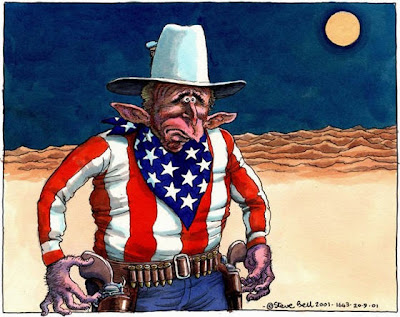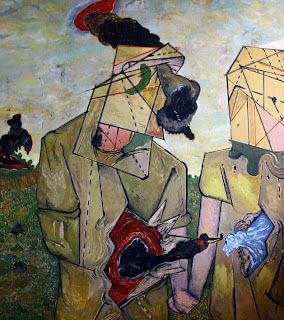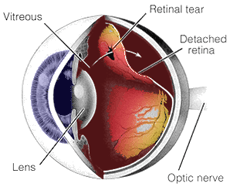
"Every winter Fox News, seeking to stir up anger through the land, uncovers evidence of a war on Christmas. Secular humanists ignorant of religion and hostile to its traditions, someone in the studio will declare, want us to say “Happy Holiday” or give Kwanzaa equal standing. But Christmas, as its name suggests, is about Christ. These enemies of Christianity will stop at nothing to get their way. Not even Santa Claus is sacred to them.
Actually, as the brilliant French social scientist Olivier Roy points out in “Holy Ignorance,” it is those defending Christmas who are not being true to their traditions and teachings. There are no Christmas dinners in the Bible, which is why America’s Puritans, strict adherents of what that venerated text offers, never sat down by the raging fire awaiting St. Nick; indeed, they briefly banned Christmas in Massachusetts.
Yule as we celebrate it today owes more to Charles Dickens than to Thomas Aquinas. Our major solstice holiday is what Roy calls a “cultural construct” rather than a sectarian ceremony, which explains why Muslims buy halal turkeys and Jews transformed Hanukkah into a gift-giving occasion. Mistakenly believing that Christmas is sacred, those who defend it find themselves propping up the profane. The Christ they want in Christmas is a product not of Nazareth but of Madison Avenue."
-- From Alan Wolfe's review of Oliver Roy's "Holy Ignorance"
"Broadly speaking, Western literature — the poems, plays and stories told from Moscow to Buenos Aires, from the “Iliad” and the “Odyssey” to “The Corrections” and “Freedom,” with postcolonial contributions from India and South Africa and even more far-flung parts of the conquered globe — can be divided into two traditions. The first, what we might call the canonical or public or, more generously, the democratic tradition, finds its roots in ancient Greece, and traces a fairly straightforward line through Rome and the Renaissance and the European colonization of the Americas and other parts of the world. This is a literature that measures itself in successive aesthetic innovations, in language that, however manipulated, finds its idiom in the vernacular rather than the orthodox, and in an increasingly representative cast of characters and behaviors, from early ecumenical existentialism (the acts of the gods and their consequences for kings and heroes) to the domestic dramas of Tolstoy and García Márquez and Toni Morrison and Salman Rushdie. In other words, it encompasses about 99 percent of all books.
In contrast to this is a tradition that begins more or less with the novel itself, i.e., “Don Quixote” (although the case can be made that it also starts with Homer, albeit with the brooding Achilles, whose actions are motivated by nothing beyond the immediate satisfaction or alleviation of some need, rather than the equally selfish Odysseus, whose every deed is calculated to secure fame after death), and wends its way through various misfits, misanthropes and criminals constitutionally incapable of resigning themselves to the social contract: Cervantes’s Don Quixote, Sterne’s Tristram Shandy, Dostoyevsky’s underground man, Knut Hamsun’s self-starving doppelgänger in “Hunger.” In lieu of offering a rational critique of the world they inhabit, the antiheroes of the second tradition simply hate or reject it, just as their creators, far from seeing literature as a tool for cultural or even individual salvation, write only to give voice to a sense of alienation from oneself, one’s peers and one’s place in history.
On the one hand, the writers of the alienating tradition can be said to keep the writers of the democratic tradition honest, deflating the hyperbolic claims to which writers and critics have grown increasingly prone in the absence of a teleological basis for literature; but, more concretely, these writers are also responsible for articulating the ennui/anxiety/weltschmerz that we now regard as the core of postmodern existential identity. From Hamsun we get Kafka, from Kafka we get Beckett, from Beckett we get Bernhard; as yet there is no worthy successor to the line — Roberto Bolaño maybe, or maybe Dennis Cooper, although Bolaño might have died too soon and Cooper lived too long to secure that place.
It was Cooper, in his introduction to Brad Gooch’s fine 1984 collection, “Jailbait,” who talked about a “widespread disbelief in a future and refusal to learn from the past,” a sensibility that he called Punk and that produced “luminous texts” filled with “inordinately real (as opposed to literary) experience.” This, as neatly as anything else, sums up the difference between the traditions I’ve just outlined, and the need for both. If the democratic tradition continually updates the individual’s relationship to society, enabling the peaceful coexistence of private psyches with public consciousness, the alienating tradition reminds us that such constructs and relationships are necessary conveniences, and that no amount of clothing or culture can enable us to escape man’s nature — and man’s fate — as just another animal subject to the gross processes of lust and hunger, micturition and egestion, the permanent nothing of death. If the first tradition is ego and superego, the second is pure id; or, to borrow another Freudian metaphor, if the first is civilization, the second is its discontents. Freud taught us that the consequence of ignoring our “cultural uneasiness” is, on the individual level, neurosis, and, on the social, world war. Freud’s world war was the first, but Bernhard’s was the second, which is to say, Freud was writing to explain what had happened in the hopes of forestalling another such conflagration, whereas Bernhard, having seen the unthinkable happen again, could only lament."
-- From "The Alienator" Dale Peck's review of Thomas Bernhard's work





















































